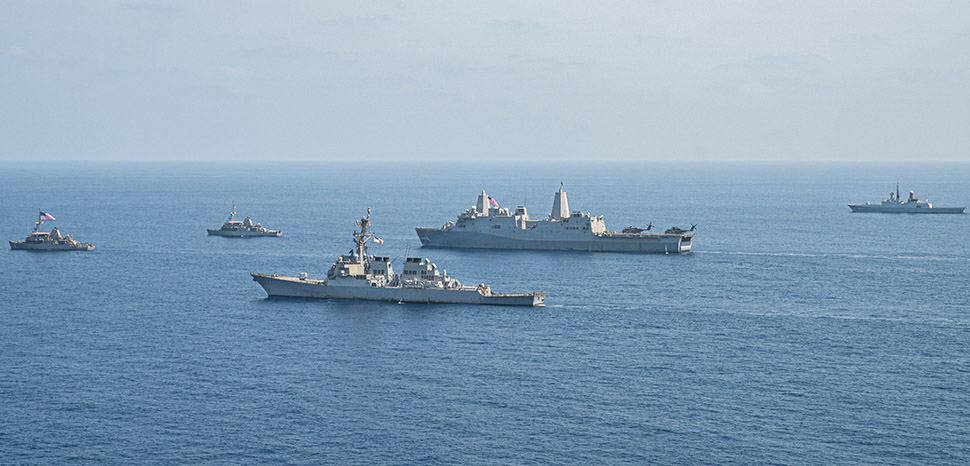
Navigating Strategic Tensions: The Red Sea Geopolitical War
The Red Sea, historically a nexus of trade, finds itself entangled in a complex web of geopolitical tensions, shaping the course of a contemporary struggle. This exploration delves into the nuances of the Red Sea Geopolitical War, unraveling the historical context, key players, and the profound implications that reverberate across the region.
Historical Roots: Geopolitical Dynamics Through Time
To comprehend the present, one must first examine the historical roots of the Red Sea Geopolitical War. Over centuries, the region has been a focal point for geopolitical maneuvering, with empires and nations vying for dominance. Today’s tensions bear the echoes of historical struggles, as the Red Sea remains a strategic chessboard for global powers.
Contemporary Arena: Key Players and Strategic Interests
In the contemporary arena, the Red Sea Geopolitical War involves a cast of key players, both regional and global, each driven by distinct strategic interests. Nations maneuver for influence over vital sea routes, access to resources, and geopolitical leverage. The competition for dominance in this maritime corridor reflects the geopolitical complexities of the modern era.
Naval Dynamics: Strategic Posturing and Maneuvers
Naval dynamics play a crucial role in the Red Sea Geopolitical War, with nations strategically posturing their naval forces to assert control. From show-of-force exercises to strategic deployments, the maritime domain becomes a theater for geopolitical expressions. The shifting naval dynamics mirror the ebb and flow of geopolitical tides.
Strategic Chokepoints: Key Battlegrounds in Geopolitical Chess
Strategic chokepoints, such as the Bab el Mandeb Strait, emerge as key battlegrounds in the Red Sea Geopolitical War. Control over these narrow passages is not merely a matter of naval strategy but a crucial determinant of geopolitical influence. The tussle for dominance over these chokepoints shapes the broader chess game being played out.
Economic Stakes: Impact on Global Trade and Commerce
The Red Sea’s significance in global trade amplifies the economic stakes of the geopolitical war. Disruptions to maritime routes and the potential closure of strategic passages impact international trade and commerce. The economic consequences extend far beyond the immediate region, affecting global supply chains and economic stability.
Humanitarian Challenges: Geopolitical Realities on the Ground
Amidst the geopolitical war, the Red Sea’s coastal communities face humanitarian challenges. The impact of strategic tensions is felt on the ground, with communities grappling with insecurity, displacement, and disruptions to daily life. The human cost of geopolitical maneuvering underscores the need for a nuanced understanding of the region’s realities.
Red Sea Geopolitical War Link: A Deeper Dive
For a more comprehensive exploration of the Red Sea Geopolitical War, click here. This link offers additional insights into specific geopolitical dynamics, strategic posturing, and the key players shaping the course of the conflict within the Red Sea.
Global Ramifications: Ripple Effects Beyond the Region
While localized, the Red Sea Geopolitical War has global ramifications. The geopolitical outcomes, alliances formed, and power shifts influence international relations and global dynamics. The ripple effects extend far beyond the region, shaping the broader context of contemporary geopolitical realities.
Diplomacy Amid Tensions: Seeking Pathways to Resolution
As tensions escalate, the importance of diplomatic efforts becomes paramount. Diplomacy amid the Red Sea Geopolitical War involves navigating complex geopolitical landscapes, finding common ground, and seeking pathways to resolution. International cooperation and dialogue are essential in de-escalating tensions and fostering stability.
Preserving Maritime Peace: A Call for Global Collaboration
In conclusion, the Red Sea Geopolitical War underscores the critical need for global collaboration to preserve maritime peace. By understanding the historical context, recognizing the contemporary geopolitical complexities, and prioritizing diplomatic solutions, nations can navigate the challenges posed by the Red Sea’s strategic significance and chart a course toward stability.
